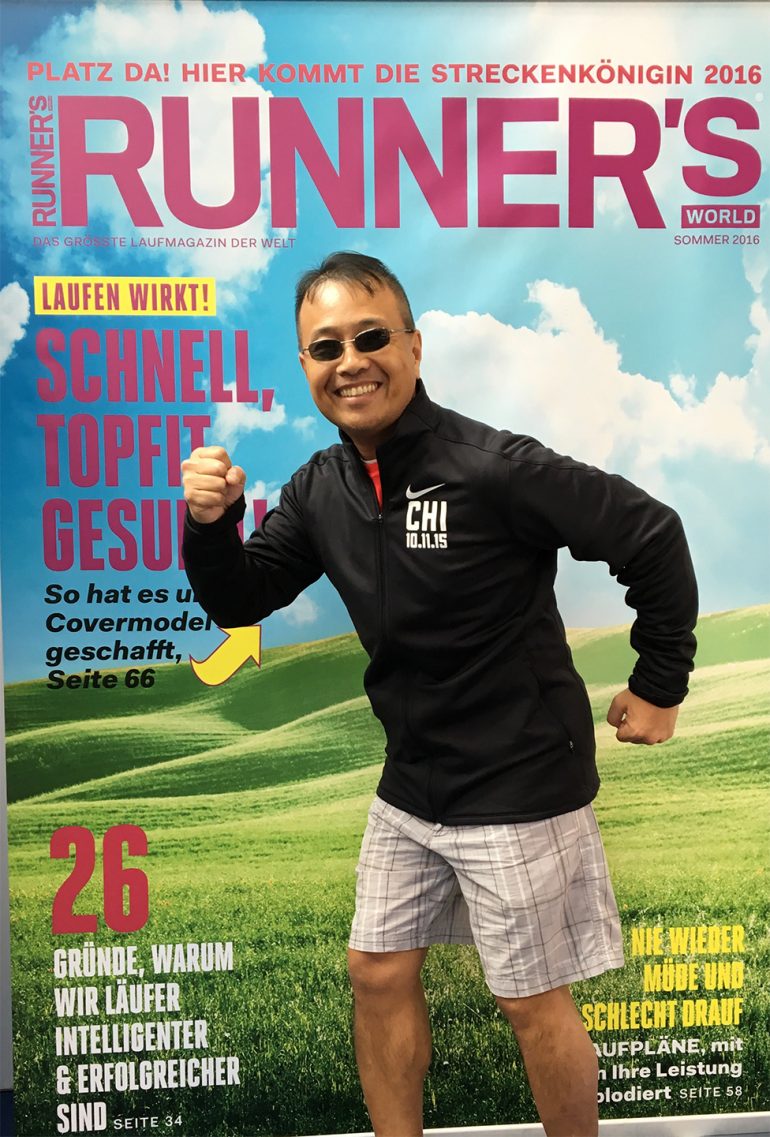No one would dispute that it takes a focused mind, critical analytical skills and a lot of hard work to be a successful lawyer. I like to think that at least some of these attributes have contributed to helping me build a robust legal practice as an intellectual property and emerging technology attorney, and earn the respect of clients, colleagues and technology industry leaders. What may not be obvious is how my dedication to marathon running has helped me to become a better lawyer.
Lawyer by Trade, Marathon Runner by Choice
I am an avid runner and recently completed the Abbott World Marathon Majors, a series of six of the largest and most renowned marathons in the world: Tokyo, Boston, London, Berlin, Chicago and New York City. I have also run Boston seven times (with number eight coming up in 2019) as a member of the Museum of Science Boston Marathon Team in support of the museum’s Traveling Programs, which bring science and technology education to many communities throughout New England.
Running marathons is an activity that requires focus, discipline, preparation and determination, especially in those “Heartbreak Hill” moments when both your mind and body are exhausted. It can also help you learn how to overcome difficult obstacles, as you are often not afforded perfect conditions to train and compete.
The qualities that you need to pull yourself along the marathon course to the finish line are qualities that can help you overcome challenges often encountered in the practice of law and become a better lawyer.
As runners, we rely on our experiences during training to prepare for and adapt to whatever race day may bring. As an intellectual property attorney, I must do the same thing — prepare for the potential long haul of a case and adapt, as appropriate, so that I can address unexpected obstacles.
How Training Helps Me Prepare
Before the sun rises each day, I run to prepare my body for the next marathon (it seems like I am always training) and my mind for the workday. Rather than getting on a treadmill, I prefer running outdoors; and like any hardy Bostonian, I pride myself on facing whatever harsh condition Mother Nature will bring, while playing mental games to keep my run interesting.
My daily run is “me” time. I look forward to that time to focus on strategies and work through issues for client projects. I also plan my day — sometimes my week — and prepare for what is to come. By mile three, I have mentally run through my calendar for the day. By mile five, I have solidified my game plan. By mile 10, I feel accomplished and energized to meet the work day.
When I reflect on my running routine, it’s clear how running regularly helps me prepare for both my upcoming races and for meeting the challenges of helping my technology clients.
How Running Helps Me Adapt
Like any muscle in the human body, mental strength needs to be exercised and built up. In every marathon I have run, I’ve been faced with a question: “Can I make it over this hill … down this hill … around the bend … to the finish line?” After completing over 20 marathons, I’ve learned that most often the deciding factor is not physical ability, but mental toughness.
The ability to manage a long run by breaking it down to a series of short segments can translate well when helping a client manage what may sometimes seem like an overwhelming case by identifying a series of actionable items. That mental strength and agility sometimes come in the form of patience or balance, while other times it’s that inner voice cheering me on to advocate for my client. It’s that ability to persevere and the mental grit that enables me to adapt to unique legal situations that come my way.
A Lesson for Practicing and Aspiring Lawyers
I am a firm believer that a good physical challenge is a good primer for any mentally challenging profession, such as the legal profession. I have also done cycling and grueling military-style obstacle events, but I keep coming back to marathon running as the physical challenge that works best for me. To both practicing and aspiring lawyers, my advice is to set a goal, find your personal challenge line — and aim to cross it.
You will be a better lawyer (and person) when you cross your personal finish line, whatever that may be.
Photos courtesy of Chinh H. Pham and Trevi Communications, Inc.


















